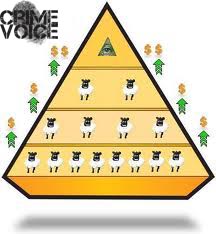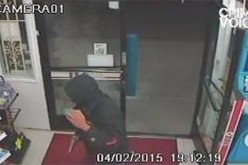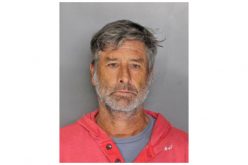Folsom Ponzi scheme operator sentenced to 20 years
SACRAMENTO — A Folsom man was sentenced to nearly 20 years in prison and ordered to repay $12 million in restitution for running a massive Ponzi scheme that financially devastated approximately 80 people and their families.
Stefan A. Wilson, also known as Stephen K. Wilson, 45, was leveled with the sentence Tuesday in federal court. Wilson had pled guilty to wire fraud and filing a false income tax return in March, days after he was indicted by a federal grand jury.
This case was the product of an extensive investigation by the Federal Bureau of Investigation and the Internal Revenue Service-Criminal Investigation.
According to Assistant United States Attorneys R. Steven Lapham and Russell L. Carlberg, who prosecuted the case, from 2006 through 2008, Wislon solicited money from investors with the promise of an 18 to 24 percent return on their money. Most of these individuals were not wealthy and could not come up with the $100,000 minimum investment required to invest in the “Christians in Crisis”  Investment Fund. Knowing this, the defendant encouraged these people to refinance their homes, draw upon their life savings or dip into their 401(k)s.
Investment Fund. Knowing this, the defendant encouraged these people to refinance their homes, draw upon their life savings or dip into their 401(k)s.
As a result, many of the victims have lost their homes or been forced to come out of retirement. Others who are in their later years now see no prospect of retirement because their life savings has been completely wiped out. There are collateral victims too, as college funds and inheritances have been wiped out.
“The defendant’s conduct was beyond reprehensible,” said U.S. Attorney Lawrence G. Brown. “He manipulated innocent investors and destroyed lives. The only thing Stefan Wilson actually earned in this scheme was the almost 20 years in federal prison the court imposed.”
To lure prospective investors, Wilson and others acting at his direction represented to investors that his CIC Investment Fund was extremely profitable, and the return on investment was more than sufficient to pay the promised rates of return. Wilson also told investors that he had a reserve fund that would continue to pay investors the promised return even if the fund sustained losses.
In fact, the CIC Investment Fund did very poorly. Between February 2006 and February 2008, Wilson collected approximately $13 million from investors. He placed approximately $6.5 million of these funds into a brokerage account, which he used to buy and sell stock. Virtually all of that money was lost and, by July 2007, the CIC Investment Fund’s value had suffered a 99.42 percent decline, leaving a balance of only $30,000.
Despite these staggering losses, Wilson continued to represent to investors that the fund was doing well and caused monthly statements and checks to be sent to investors showing that they were receiving the promised return. The funds that were not deposited in the brokerage account were left in a bank account that Wilson used to make lulling payments to investors and to pay for a lavish lifestyle. He used this money on a $400,000 down payment on his personal residence in Folsom, a $118,000 down payment on a Lamborghini, and a $90,000 down payment on a boat. Wilson failed to report this income on his 2006 tax return.
Before embarking on this scheme, Wilson changed his name from Stephen K. Wilson to Stefan A. Wilson, a change that would have helped to conceal from investors the fact that he had a 2002 fraud conviction and a 2005 bankruptcy.
Several of Wilson’s victims spoke at the sentencing hearing and described the devastating effect of his crime. One victim related how Wilson took money from his son, a disabled war veteran, knowing that he had already lost most of the investors’ money. Another investor described how three generations of her family lost money in the scheme, including her octogenarian parents who lost a farm that had been in the family for nearly 60 years and was paid off until Wilson convinced them to refinance it. Victims also described how Wilson, a former youth minister, lied to them about donating 10 percent of his profits to Christian charities and how they trusted him because of his affiliation with the church.













